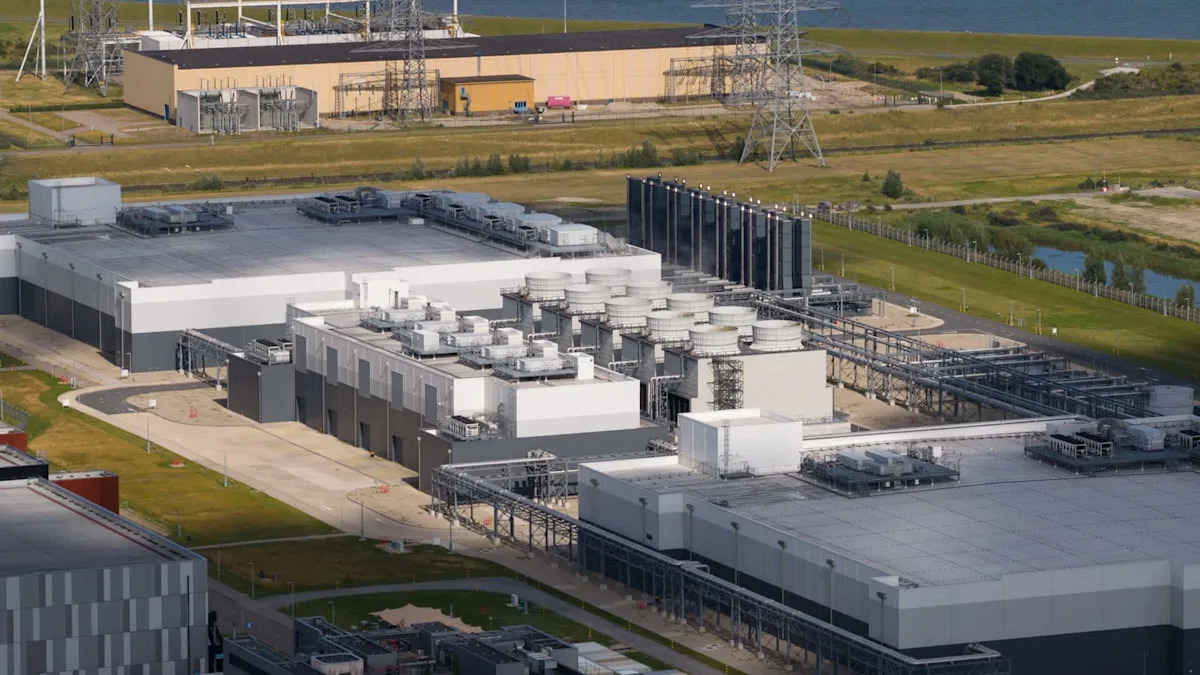Technology
Experts Warn of Hidden Dangers from AI Data Centers

As artificial intelligence (AI) technology rapidly evolves, health and environmental advocates are raising alarms about its potentially hazardous side effects. They warn that data centers driving the AI boom may be releasing harmful substances known as “forever chemicals” into surrounding communities. This issue has received insufficient attention, according to experts.
The rise of AI has been widely celebrated for its potential to transform various industries, enhancing energy efficiency, monitoring environmental changes, and improving food supply management. Yet, these advancements come at a cost. Data centers, which power AI operations, consume significant energy and water, leading to concerns about their environmental impact.
Recent reports by The Guardian highlight that major tech companies, including Google, Microsoft, and Amazon, are utilizing per- and polyfluoroalkyl substances (PFAS), also referred to as f-gas, for cooling their data centers. These chemicals could pose serious environmental and health risks as they may leak into the atmosphere or contaminate land when equipment is disposed of. The growing demand for these technologies has led to increased production of f-gases, with companies like Chemours ramping up output in their West Virginia and North Carolina facilities to meet industry needs.
Jonathan Kalmuss-Katz, an attorney with Earthjustice, emphasizes that this matter has been “dangerously understudied,” raising concerns about the lack of regulatory oversight. As data center operations expand, so too could the exposure to these chemicals, which have been linked to severe health issues, including reproductive problems and cancer.
PFAS are notorious for their persistence in the environment, earning them the “forever chemicals” label. They do not degrade easily, leading to potential generational health impacts. Alarmingly, companies are not required to disclose their f-gas usage, and regular testing at data center sites remains absent. Industry claims suggest that escaping f-gas does not pose a threat because it transforms into a compound called Tfa, which is not classified as a PFAS in the United States, though it is recognized as such in other countries.
The Environmental Protection Agency (EPA) has recently indicated it would expedite chemical reviews to facilitate data center operations, a move that has raised concerns among advocates. EPA Administrator Lee Zeldin stated that the agency aims to “get out of the way and help speed up progress,” which many interpret as a shift toward less stringent oversight.
Maria Doa of the Environmental Defense Fund criticized this approach, arguing that the EPA’s strategy could undermine public safety. She noted that insufficient regulations on data centers using potentially harmful chemicals might also endanger workers in those facilities and the plants producing their equipment.
In light of these challenges, some states, such as Minnesota, are advocating for legislation that requires tech companies to disclose their chemical usage. As the conversation surrounding AI regulations gains momentum ahead of the U.S. mid-term elections, constituents are likely to push candidates to address public health risks and environmental concerns associated with the industry.
Until stricter regulations are implemented, residents may find themselves facing unknown risks, with marginalized communities potentially bearing a disproportionate burden. Ongoing research into effective solutions for cleaning up contamination and addressing health risks related to PFAS exposure will be vital in the coming years. The call for greater awareness and regulatory action is urgent as the AI industry continues to expand.
-

 Top Stories1 week ago
Top Stories1 week agoPiper Rockelle Shatters Record with $2.3M First Day on OnlyFans
-

 Top Stories5 days ago
Top Stories5 days agoMeta’s 2026 AI Policy Sparks Outrage Over Privacy Concerns
-

 Sports4 days ago
Sports4 days agoLeon Goretzka Considers Barcelona Move as Transfer Window Approaches
-

 Top Stories1 month ago
Top Stories1 month agoRachel Campos-Duffy Exits FOX Noticias; Andrea Linares Steps In
-

 Top Stories1 week ago
Top Stories1 week agoUrgent Update: Denver Fire Forces Mass Evacuations, 100+ Firefighters Battling Blaze
-

 Top Stories1 week ago
Top Stories1 week agoOnlyFans Creator Lily Phillips Reconnects with Faith in Rebaptism
-

 Entertainment4 days ago
Entertainment4 days agoTom Brady Signals Disinterest in Alix Earle Over Privacy Concerns
-

 Top Stories6 days ago
Top Stories6 days agoOregon Pilot and Three Niece Die in Arizona Helicopter Crash
-

 Health2 months ago
Health2 months agoTerry Bradshaw Updates Fans on Health After Absence from FOX NFL Sunday
-

 Top Stories3 days ago
Top Stories3 days agoCBS Officially Renames Yellowstone Spin-off to Marshals
-

 World1 week ago
World1 week agoTragedy in Crans-Montana: Fire Claims Lives of Holiday Revelers
-

 Top Stories4 days ago
Top Stories4 days agoWarnock Joins Buddhist Monks on Urgent 2,300-Mile Peace Walk


